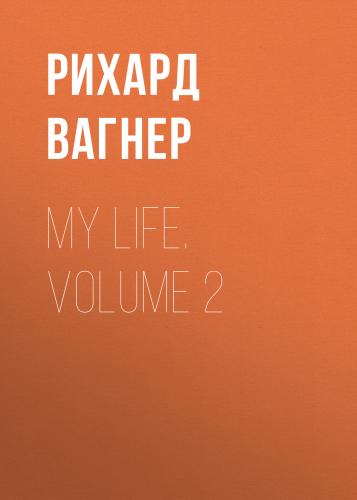But it was the personal relations which grew out of my stay in London that provided the strangest aspect of my life there.
Immediately after my arrival, Karl Klindworth, a young pupil of Liszt, who had been recommended to me as particularly gifted, came to see me. He became a faithful and intimate friend, not only during my stay in London, but ever after. Young as he was, the short time he had spent in London had sufficed to give him an opinion of English musical life, the justice of which I was soon compelled to admit, terrible though it was. Incapable of adapting himself to the curiously organised English musical cliques, he at once lost all reasonable prospect or hope of meeting with the recognition due to his talent. He resigned himself to making his way through the dreary wastes of English musical life solely by giving lessons like a day-labourer, being too proud to pay the smallest attentions to the ruling critics, who had fallen on him immediately as a pupil of Liszt. He was really an excellent musician, and in addition a distinguished pianist. He immediately approached me with the request to be allowed to make a pianoforte arrangement of the score of Rheingold, for the use only of virtuosi of the first rank. Unfortunately, he was overtaken by a tedious illness, which robbed me for a long time of the desired intercourse with him.
Although Prager and his wife stood by me with great constancy, my real centre of intimacy was the original Sainton-Luders' household. I had a standing invitation to dine with them, and I found occasion, with few exceptions, to take my meals with these friends, whose devotion surpassed that of all the others. It was here that I generally found relaxation from the unpleasantness of my business relations in London. Prager was often present, and we frequently took an evening stroll through the foggy streets. On such occasions Ludors would fortify us against the inclemency of the London climate by an excellent punch which he could prepare under any conditions. Only once did we get separated, and that was in the terrific crowd that accompanied the Emperor Napoleon from St. James's Palace to Covent Garden Theatre one evening. He had come over to London with his Consort, on a visit to Queen Victoria, during the critical stage of the Crimean War, and the Londoners gaped at him as he passed no less greedily than other nations are apt to do under similar circumstances. It so befell that I was taken for a pushing sightseer, and proportionately punished by blows in the ribs when I was crossing the road to try and get into Regent Street from the Haymarket. This caused me much amusement, on account of the obvious misunderstanding.
The grave annoyances which arose, partly from the peculiarly momentous quarrel between Sainton and Mr. Anderson (instigated by Costa), and which deprived me of every possibility of obtaining any influence over the society, were productive, on the other hand, of some amusing experiences. Anderson had, it seemed, succeeded in elevating himself to the post of conductor of the Queen's band, through the influence of the Queen's private coachman. As he possessed absolutely no knowledge of music, the annual court concert which he had to conduct became a very feast of absurdity to the unruly Sainton, and I heard some very funny stories about it. Another thing brought to light in the course of these imbroglios was that Mrs. Anderson, whom I had christened Charlemagne on account of her great corpulency, had appropriated to herself, among other things, the office and salary of a court trumpeter. I soon arrived at the conviction, from these and other similar reports, that my lively friend would be beaten by this snug little clique in the war of disclosures, and was able subsequently to see the decision go against him at the point when either he or Anderson had to give way. This confirmed my idea that in this free country of England, things were managed in much the same way as elsewhere.
Конец ознакомительного фрагмента.
Текст предоставлен ООО «ЛитРес».
Прочитайте эту книгу целиком, купив полную легальную версию на ЛитРес.
Безопасно оплатить книгу можно банковской картой Visa, MasterCard, Maestro, со счета мобильного телефона, с платежного терминала, в салоне МТС или Связной, через PayPal, WebMoney, Яндекс.Деньги, QIWI Кошелек, бонусными картами или другим удобным Вам способом.
